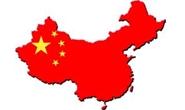Prices

December 22, 2013
Iron Ore Spot Prices Remain Above $130/dmt
Written by John Packard
According to The Steel Index (TSI), iron ore spot prices were reported at $132.7 per dry metric ton CFR Tianjin Port (China) for 62% Fe fines and $120.5/dmt on 58% Fe fines. Trading was quiet this week as TSI reported 62% Fe prices down $3.30/dmt and 58% Fe prices down $4.70/dmt over the past week.
Over the past four weeks prices are lower by 2.4 percent on 62% Fe fines and 3.8 percent on 58% Fe fines.
At the moment there appear to be two key drivers which are impacting iron ore pricing. The Chinese government is forcing polluting industries and heavy electrical use industries to restrict production. This is having a short term tempering effect on the Chinese steel mills’ need for new iron ore supply. A second issue which is dampening short term needs is due to the Chinese banks trying to collect debts and tightening the money supply for new iron ore loans.
Chinese New Year begins on January 31st this year and most mills will be closed for a week (or longer) during the Holiday.







